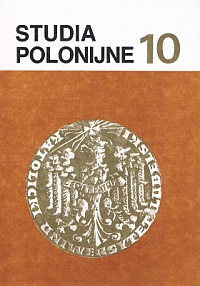Religious Life of Poles in Great Britain 1945-1950
Main Article Content
Abstract
The introductory part of the paper contains a characterization of the Polish ethnic group in Great Britain. The author draws the reader’s attention to the number of its members /150 thousand in 1951 /, its professional structure, the way the Poles were distributed on the area of Great Britain, their motivation for staying in Great Britain as emigrants, their fates during the war and their political orientation. He also points to the very unfavourable - at that time - of the local society towards Poles - which was especially true in case of the trade union activists and the leftist political parties. Actions undertaken by the British government are also discussed, which were meant to help the Poles adapt themselves to the life in Great Britain. The author analyses the difficulties the Poles had to face in this respect and the factors which made their integration more difficult.
The main part of the paper deals with the conditions in which the Polish pastorate was organized and with its social role in relation to the emigrants. In the beginning, about 200, and then about 100 Polish priests worked in it. They were mainly former army chaplains. The conditions they worked in were often difficult, both in the financial and in the psychological sense, if they remained with the emigrants, then it was only because of a great need for Polish pastorate. The fact that they were very closely connected with the former soldiers through the war period and with the civilians through sharing their fate in the same time was of great importance.
The author also presents English opinions on the religious life of the Poles and the privileges they had owing to the English Episcopate. At first the Episcopate hoped the Poles would quickly undergo the assimilation process, but already about 1550 they recognized that their separate religious life would be a long-range phenomenon.
The author also briefly discusses the Polish press in Great Britain, as well as the work of various printing offices, especially those of religious character.

